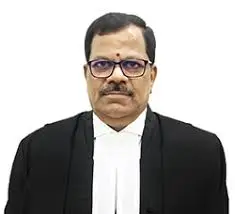‘God does not forget nor forgive so easily’: In farewell speech, Madhya Pradesh HC judge says he was transferred ‘with ill intention to harass me’

In an unusually candid farewell speech on May 19, 2025, Justice Duppala Venkata Ramana of the Madhya Pradesh High Court publicly alleged that his transfer was carried out with “ill intention to harass” him. The judge’s pointed words, “God does not forgive nor forget so easily. Those who harmed me will suffer in another way,” have reignited debate over the fairness and transparency of judicial transfers in India.
The Transfer That Stirred Controversy
Justice Ramana was transferred in July 2023 from the Andhra Pradesh High Court to the Madhya Pradesh High Court. Before this, he had repeatedly requested a transfer to the Karnataka High Court. The reason was deeply personal—his wife suffers from a serious neurological condition requiring specialized care available at the National Institute of Mental Health and Neurosciences (NIMHANS) in Bengaluru.
Despite these requests, the Supreme Court Collegium neither granted nor explicitly rejected his pleas. Instead, it transferred him to Madhya Pradesh, a decision Justice Ramana described as driven by “malicious intent” rather than administrative need. The transfer disregarded his family’s medical emergency and caused him “great personal anguish,” he said.
Justice Ramana expressed frustration over the lack of communication. “They never gave me reasons. Neither did they respond to my representations,” he said. This silence compounded his sense of unfair treatment.
A Judge’s Personal Pain Meets Public Statement
Judges rarely express such strong emotions publicly. Farewell speeches typically highlight professional achievements and express gratitude. Justice Ramana’s speech stood apart for its raw honesty and moral charge.
He said the transfer aimed to unsettle him, but it failed. Instead, he found strength in his work and support from colleagues and the Bar in Madhya Pradesh. “I am grateful for their kindness in what has been the most difficult phase of my life,” he said.
His closing words invoked a higher sense of justice: “God does not forgive nor forget so easily. Those who caused me pain will face consequences, even if not in this life.”
Not the First Time: Similar Allegations Surface
Justice Ramana’s allegations echo concerns voiced by other judges in recent years. In 2023, Justice Pritinker Diwaker, former Chief Justice of the Allahabad High Court, revealed that his transfer from Chhattisgarh in 2018 was meant to harass him. He praised Chief Justice of India D.Y. Chandrachud for later correcting that transfer.
These testimonies suggest that transfers sometimes serve as covert punishment or coercion, rather than objective administrative decisions. This perception damages the judiciary’s image as an impartial institution.
Why Judicial Transfers Matter
Judicial independence remains a pillar of democracy. Transfers protect judges from local pressures and conflicts of interest. However, when transfers appear arbitrary or punitive, they threaten that independence.
Currently, the Supreme Court Collegium, a body of senior judges, recommends transfers. This system lacks transparency; it does not require explanations or appeals. Critics argue this opacity creates room for personal biases or political considerations.
When judges feel powerless to challenge transfer decisions, it affects morale and may influence judicial behavior. Family hardships, like those faced by Justice Ramana, often go unconsidered.
Calls for Reform: More Transparency and Accountability
Justice Ramana’s speech brings renewed urgency to reform debates. Experts suggest several improvements:
- Clear Communication: Judges should receive formal explanations for transfers, especially when they affect personal lives.
- Right to Appeal: Judges should have a fair mechanism to challenge or appeal transfer orders.
- Human-Centric Policies: Transfers should consider judges’ family and medical needs.
- Balanced Oversight: While protecting judicial independence, limited external oversight could enhance accountability.
These steps could reduce perceptions of harassment and ensure transfers uphold the judiciary’s integrity.
Conclusion: A Call to Conscience
Justice Duppala Venkata Ramana’s farewell speech shines a spotlight on a sensitive but critical issue—how the judiciary manages its own. His personal story, marked by pain and principled courage, demands that judicial authorities listen and act.
His invocation of divine justice reminds the system that fairness cannot be postponed forever. If the judiciary hopes to maintain public trust and protect its independence, it must address concerns about transfers with transparency and compassion.
As India’s highest courts continue their crucial role in upholding law and democracy, Justice Ramana’s words serve as a timely reminder that justice must also extend within.






